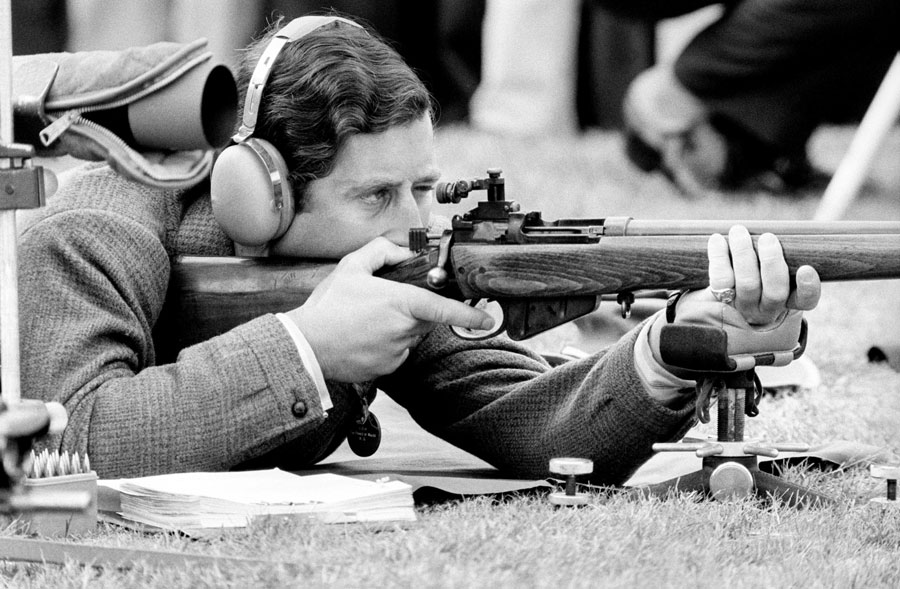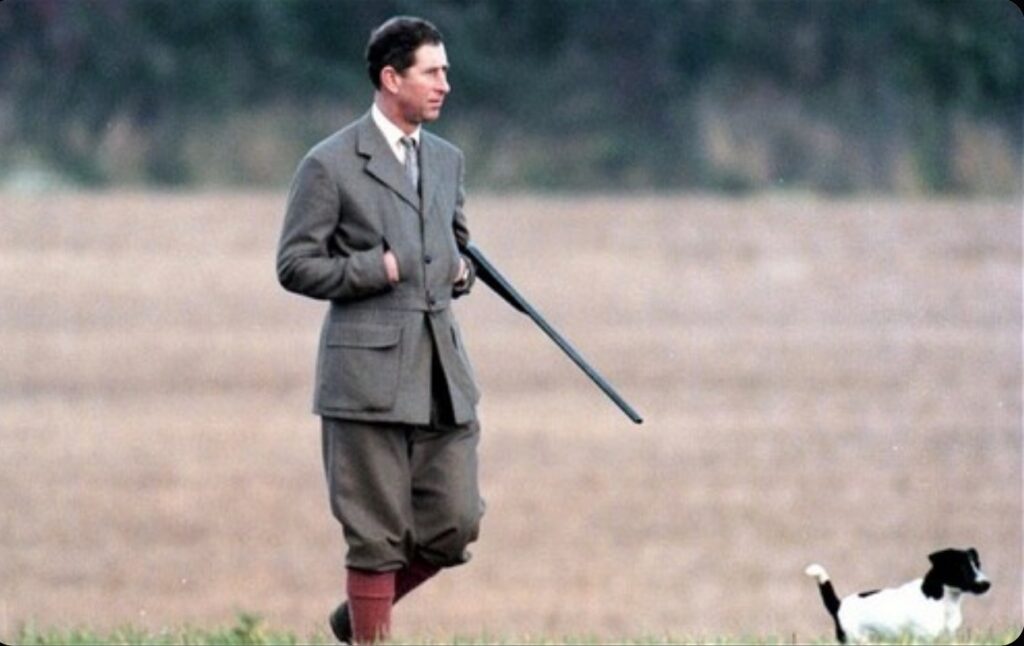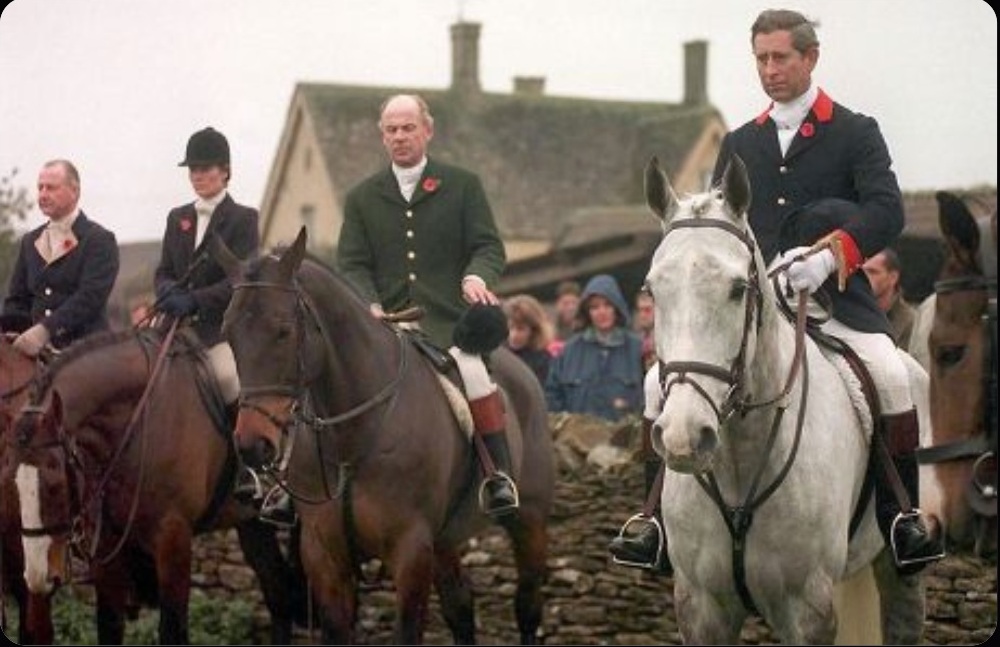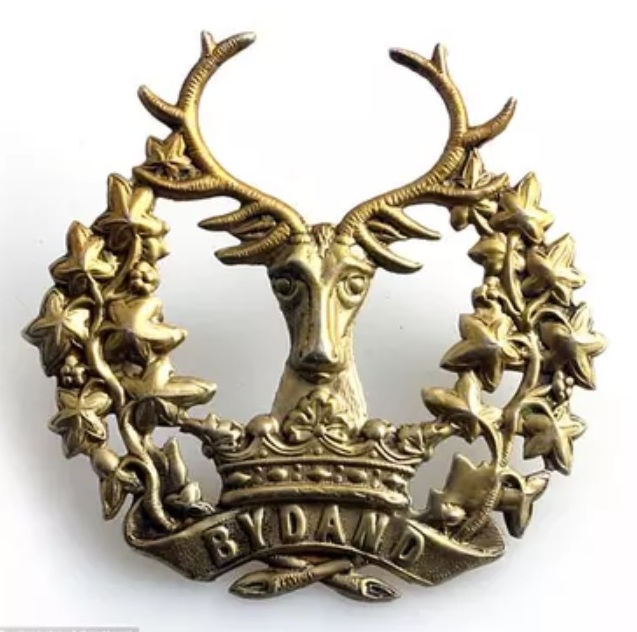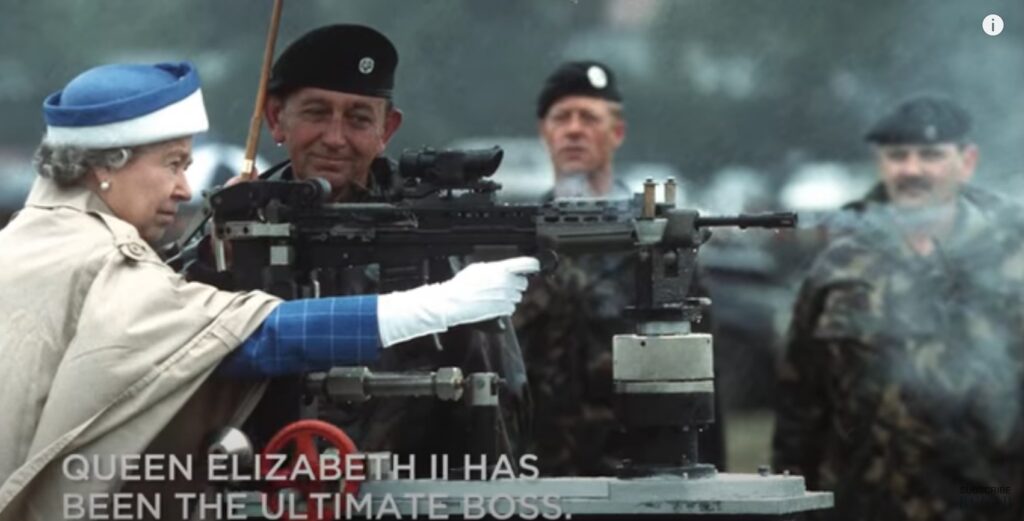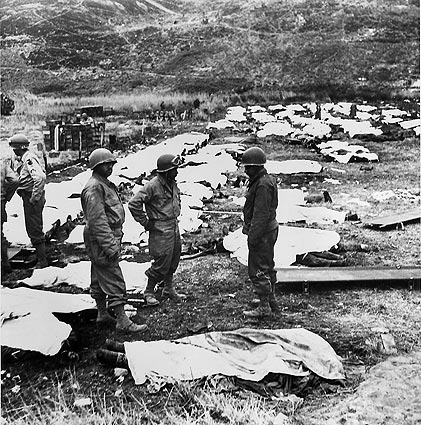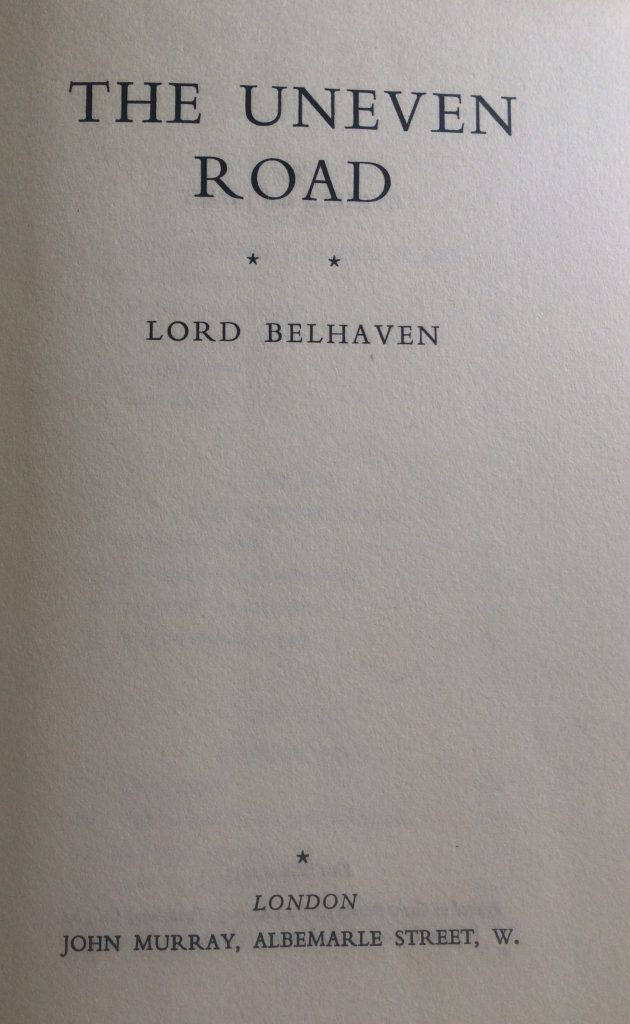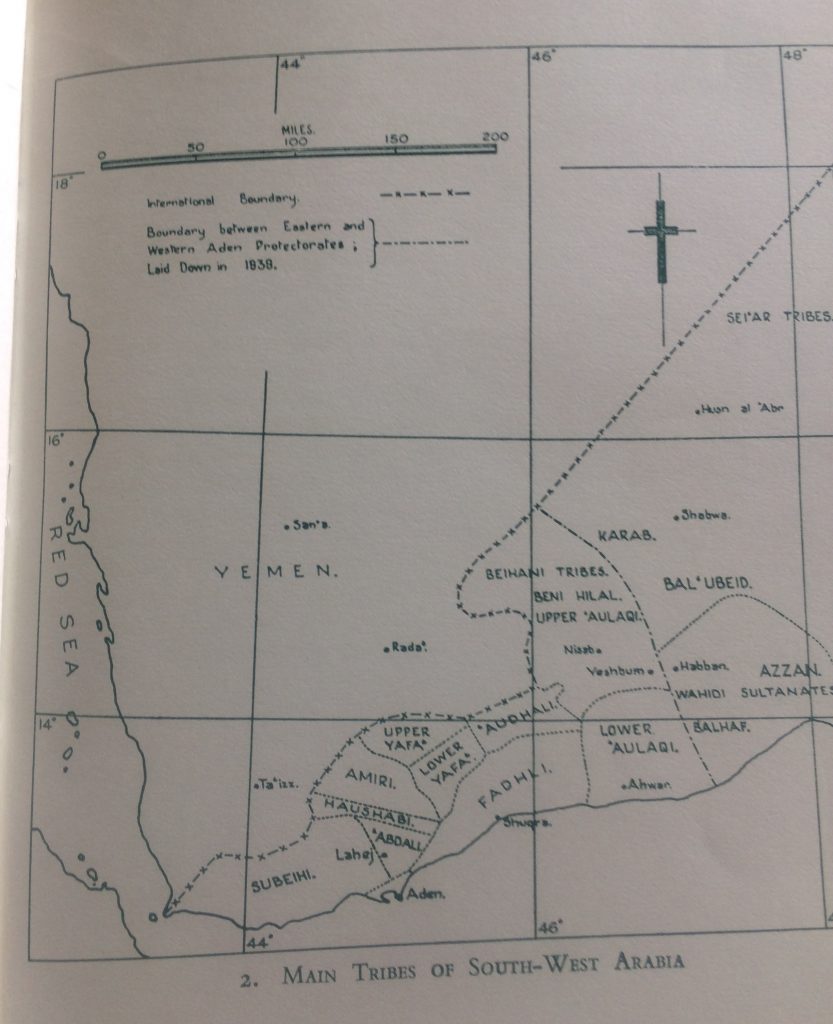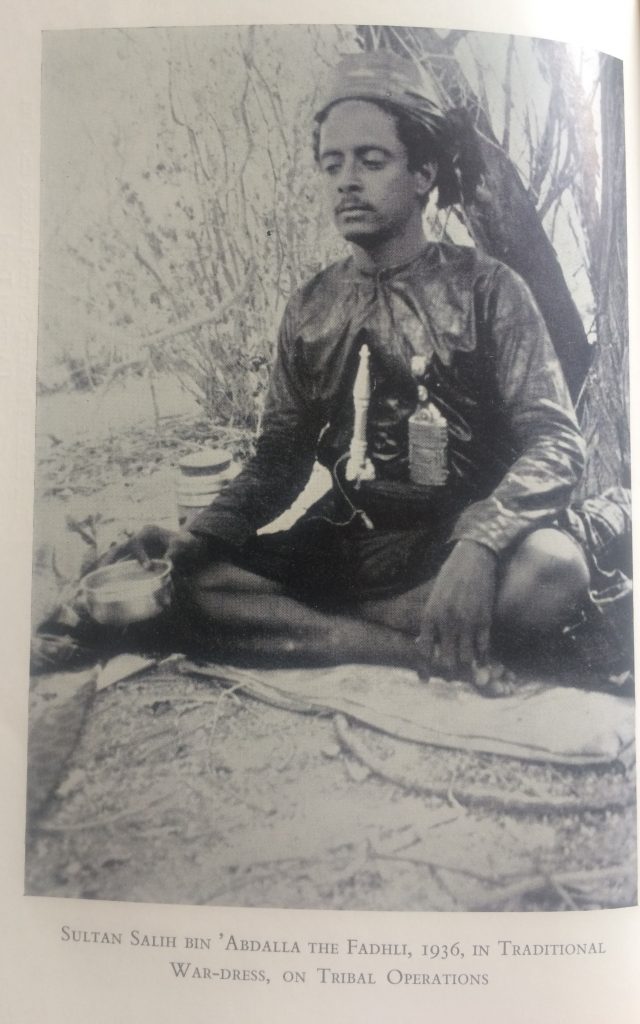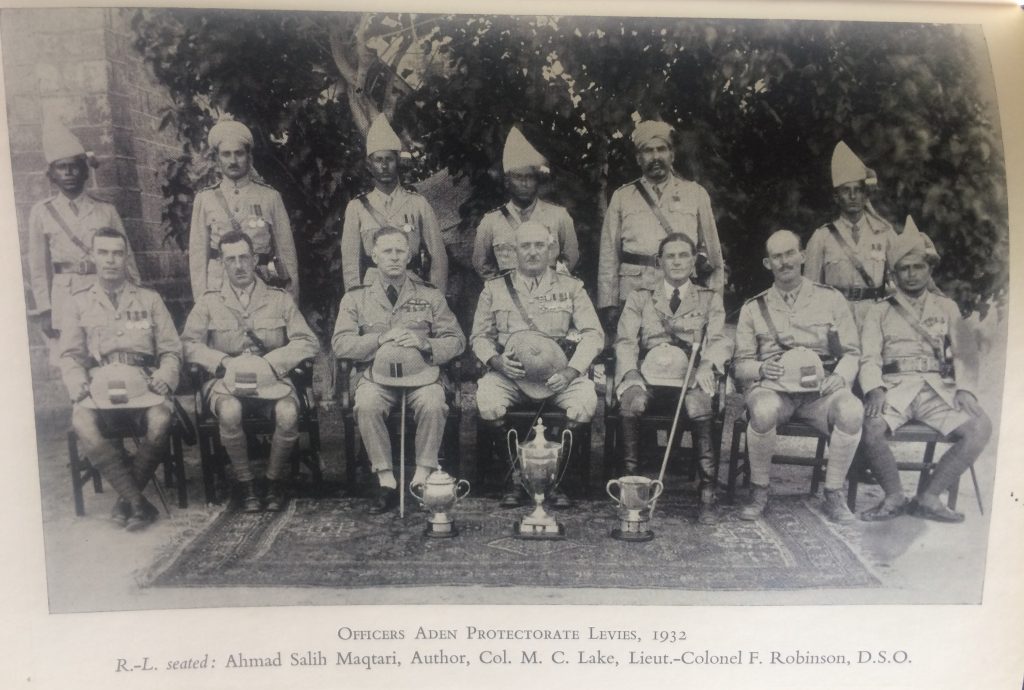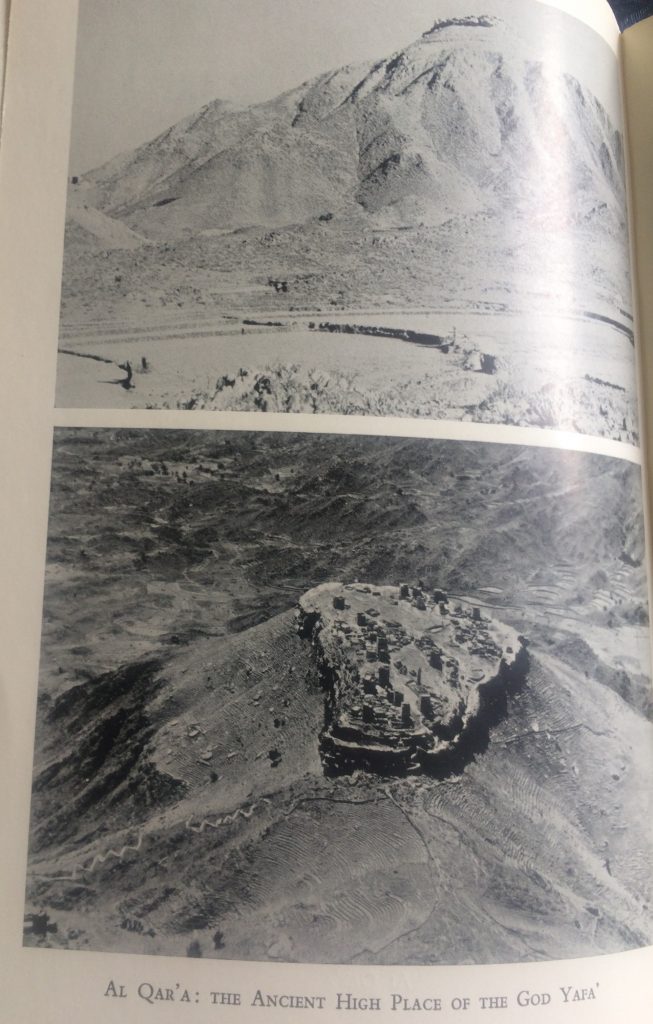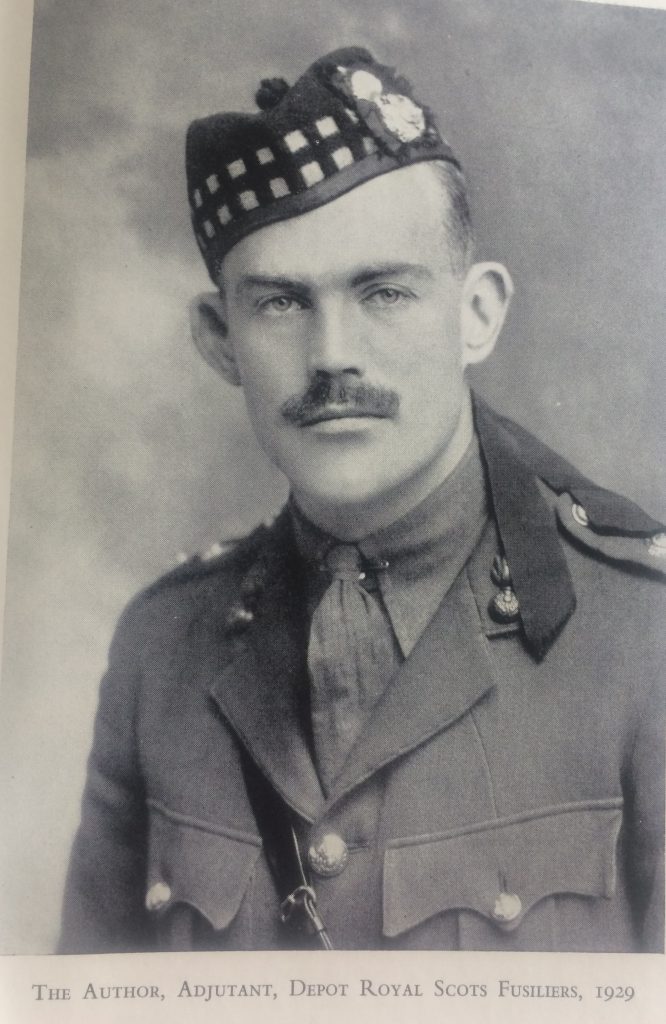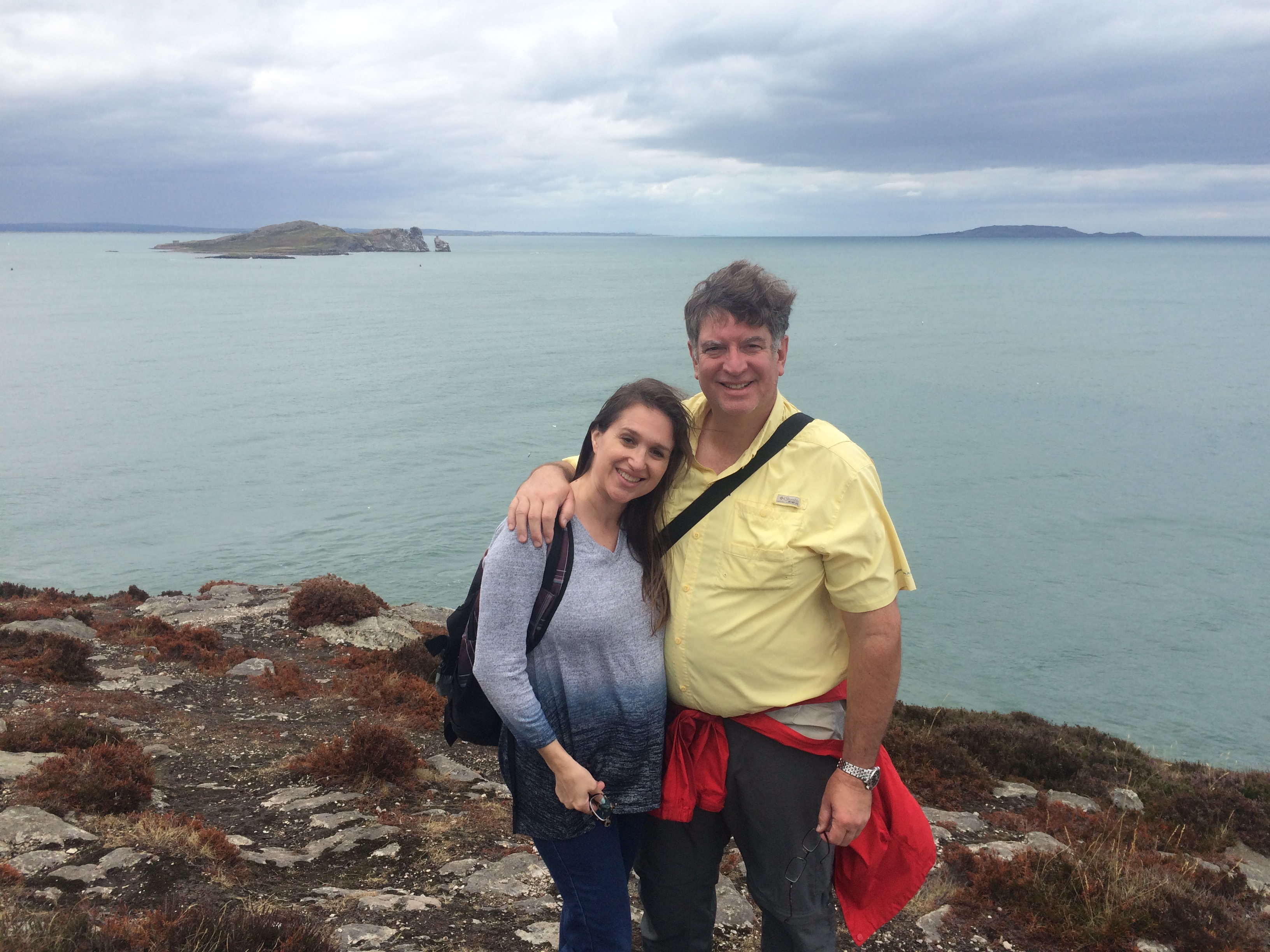Posts Tagged → england
The king you got, not the king you wanted or needed?
Two days ago was Coronation Day in England, whereupon the former very very longtime Charles Prince of Wales became Charles King of England AKA King Charles III. Even in The Year of Our Blessed Freedom From Monarchy 2023, this is still a big deal, because like it or not, kings and queens can matter when they want to, for better or worse.
This new king follows on the heels of his most amazing and impactful mother Queen Elizabeth, whose traditional values and top notch leadership skills many people miss. It appears Charles also wants to matter, like his mother, to be of consequence, to make what he believes is a positive difference on Planet Earth. So, we take note of his ascendence. He may not be the high caliber of his mother, who many would have liked to have seen replaced by another woman or man of equal qualities (good luck finding such a person anywhere in Western Civilization today), but Charles is nonetheless now the monarch. For better or for worse, or most likely a mix of both really bad and some good, King Charles is not going to be invisible.
Setting aside the die-hard monarchists for a moment, there was still a lot of worldwide public interest in Saturday’s coronation, if only because several mini-dramas played out in the coronation process. One being the role of His Most Spoiled Brattiness Prince Harry (strategically blocked from camera view at the actual coronation by a tremendous red feather plume in his aunt Anne’s hat in front of him), two being the marked absence from the coronation of Harry’s horrendous harridan of a wife, MeGain Markle, three being the final and hard public point being put on Charles’ longtime relationship with Priscilla, which had been openly maintained even while Charles was married to the most glamorous human being ever to grace the earth, Princess Diana Spencer. Many people never forgave Charles for his affair and disrespecting of Diana, but now, it’s officially all over. Charles and Priscilla are officially married and officially King and Queen of England.
Surely there are other notable features of this coronation, but to me, the one that matters most is the one that almost no one (that I could find) took notice of, and that is King Charles’ masculinity and his love of field sports, notably hunting. With guns, and occasionally spears. In a world of the establishment war against boys, against masculinity and manhood, of forced and artificial feminization of men at every turn (like Bud Lite’s Dylan Mulvaney debacle in the USA), King Charles’ quiet but absolute manliness is a crucial symbol for normal people and for those who should want to return to being a natural, normal, healthy human.
If nothing else, King Charles may end up being a potent symbol of How To Be A Man. Laugh if you want about this, but at one time not too long ago, 99% of boys naturally wanted to become masculine men when they reached adulthood, to be service-minded police officers, brave firefighters, adventurous cowboys, heroic soldiers, and hunting was a bedrock experience that trained many boys for these fields. In a western world now under siege from within our borders and from within our own governments that are captured by our worst enemies, who among other things are doing double duty to weaken us by erasing manhood and masculinity from our population, having public symbols of masculinity and manhood, like King Charles, is more important than many people realize.
Setting aside his many bad policy positions, King Charles is no dithering dandy, no fop. Quite the opposite. He speaks firmly, rides tall in the saddle, properly and expertly handles rifle, pistol, and shotgun, and is not afraid to kill his own dinner or get blood or dirt on his hands or clothes. This is a king I could like and who we all need, if only because he is a real man. Long live this manly king.
Long live the Queen
England’s Queen Elizabeth II died yesterday, aged 96 and wise beyond her years. A monarch beloved by so many of The People in an age of individualism, as she was, must be special. What is intriguing is that it is not so much what Queen Elizabeth said, but both how she said what she said, and even more important, what she left unsaid. Her mere dignified if mute presence was all that was required to ensure that some event stood proudly and solidly. That is true power.
Queen Elizabeth stood as a symbol of times gone by and hopefully not completely gone through our fingers. The past times of which we speak here included dignity, respect for others, following the law, placing others above one’s self, making sacrifices in the present for future gains, fealty to a higher order and set of rules than what I myself wants right now, and so on.
You could call Queen Elizabeth the last living representative of Tradition. Not just English tradition, but Western Civilization’s traditions. As much as someone such as I might oppose monarchy on its face (more on this below), I have also come to appreciate and value the role of that tradition. Especially in light of the violent anarchic abyss swallowing up America and Europe as you read these words. Monarchy in general, and Queen Elizabeth in particular, today stand for tradition’s consistency if nothing else. And it is consistency Western Civilization needs so desperately now.
Into the breach steps Charles, Prince of Wales, and soon to be coronated King Charles or perhaps some other historic name. Perhaps he will become a King George, a name which has both greatly positive and also very negative histories. Either way, a change of name will do Charles good, especially if it changes him. It is hard to imagine a person less befitting the role of king than this Charles, because he is a spoiled playboy whose private life often reflected the 1970s’ wilder freedoms and lack of seriousness. That Charles pretends at climate change environmentalism makes him even worse, because his carbon footprint must be the size of…well, a large island I have seen somewhere. Yet he speaks down to us about our own consumptions. Yuck. Nothing undermines authority more than spoiled, contemptible authoritarians like Charles.
If there is one redeemable aspect of Charles it was his prior focus on conserving England’s spectacular countryside landscape. In that he did everything correctly, from outright preservation to careful low-impact development that reflected the ancient dovetail fit of English citizen into life sustaining shire, thatched roofs and all. Oh how I wish that this land conservation ethic had been Charles’ sole love and hallmark. This one cause alone is sufficient to mark a king with greatness and to make him a true leader of his people. England’s spectacular landscape shaped its people, and to preserve that landscape is to preserve its values and culture.
Sadly, Charles is as unstable as water, and stands at the opposite end of the character and intelligence spectrum as his now deceased mother. His endless tabloid blathering on about every ridiculous little leftist cause reveals a weakness of wit and backbone that augurs poorly. One does not know where Queen Elizabeth’s death and Charles’ ascension will take England and Western Civilization, but it is probably going to accelerate the current decline. We all can work hard to advance the cause of freedom, hope, pray, and even don Druid’s robes if it will move Charles in the correct direction as a leader. Success will probably require all of these efforts.
Half of my own family is Sons and Daughters of the American Revolution, with very famous ancestors who in the 1770s bravely and successfully confronted an ascendant Britain to win freedom of choice for many from a tyrannical British monarch bent on subjugating everyone through coercive force of arms. I was raised to deride monarchy and aristocracy. And yet here I am, saying Long Live the Queen.
She was not just England’s queen, she was our queen, as well.
Queen Elizabeth, our shared civilization needs you more now than ever. May you intervene for the better from above.
D-Day remembrance poses challenge for many people
Today is the 75th anniversary of D-Day, that incredible re-invasion of Nazi-occupied France from across the English Channel that was the beginning of the end of Adolf Hitler’s cruelly evil “Thousand Year Reich.”
So what do people commemorate this week? Well, the American 82nd Airborne guys put on a live re-enactment of the cliff scaling at Point du Hoc, for one thing. A lot of ships and boats have been traveling across the English Channel for one re-enactment or demonstration purpose or another, as well as planes and I think even some parachuting. The purpose of all this activity is to visually and viscerally remind today’s people of what yesterday’s people did for them, how they sacrificed for them, died for them, gave everything they had so that today’s people could enjoy their lives free of fear, oppression, and military threats.
Problem is, do today’s people really understand or even care about D-Day and the Allied fight against totalitarian German war-making?
Many of us “older” people ask this question because so many of the younger people seem to think human history began with the invention of the iPhone, and that all one needs to be a functioning human being is a smart phone, a cup of expensive coffee, and the latest sloppy looking beanie hat, and that all of life’s successes will naturally follow if you simply appear in public like this.
Amazing examples of clueless disregard for what this week’s D-Day anniversary celebrations are about include Sadiq Khan behaving like a rotten jerk towards the elected leader of the Free World, Donald Trump, who made a lovely visit to England and France this week. Khan is mayor of London, and by any objective measure (crime, poverty, taxes, services, dirt, rats, fires) his politically correct city administration has been a disaster.
Without America’s intervention in World War II, without our nation’s huge sacrifice of young men and taxpayer money, Khan would not have the freedom today to spew his petty, nasty things against President Trump and freedom. Khan was joined yesterday by about five thousand fellow jerks who showed up to protest against Trump, for a “free Palestine,” for communism and against capitalism, for big government control and against individual liberty…an alphabet soup of leftwing causes as evidenced by the signs they waved about while cheerfully beating up two old men whose views they objected to.
So if London today elects an anti-Western Sadiq Khan to be its representative on the international stage, and Khan is full of petty, childish insults for the US president during this week celebrating freedom and democracy gratis America, then what does this say about the citizenry of London? Have they also forgotten why D-Day happened? Have they forgotten the nonstop German bombing of London’s citizenry, the massive destruction of London, the deprivation?
Do they even care?
With an elected representative like Sadiq Khan, it seems they don’t care. They don’t care about history, or the risks of totalitarianism, how we all got to where we are today, or the daily effort we all must make in our jobs, in our homes, and our communities to keep our common civilization moving forward. And in fact, many of Khan’s supporters seem pleasantly ignorant of D-Day and actually intent on bringing down our common civilization. What they plan to replace it with is anyone’s guess.
A natural question for Khan’s supporters is “Will your England be as free and have as many opportunities for self-improvement as the former England?”
Judging by the cruel and violent behavior of Siobhan Prigent against one of the old men, just asking the question of these folks will get you punched in the face.
And it is against this unnatural backdrop of foolish citizens demanding everything be given to them and that they not be asked to give back, that we celebrate the 75th anniversary of an incredibly complex multi-national operation to challenge the military success of an incredible evil, the very totalitarianism that Mayor Sadiq Khan and his followers seem to have in mind for Britain once again.
And so we see that in truth today’s memorialization of D-Day is not in vain, or just for pure history buffs who like pomp and circumstance, but rather to remind us that the same evil forces are unleashed against Britain and Western Civilization once more.
But this time from inside.
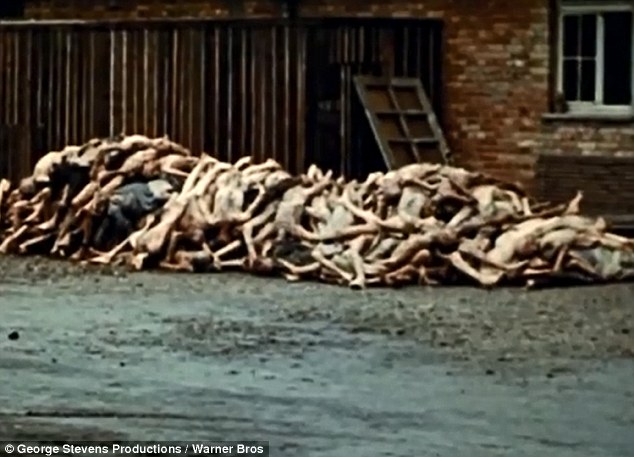
Bodies of a totalitarian government’s political enemies piled high at Dachau. This is in Europe, not in some far-off place we Westerners can’t pronounce. This is what happens to normal people like you and me when totalitarians like Sadiq Khan get full control of government
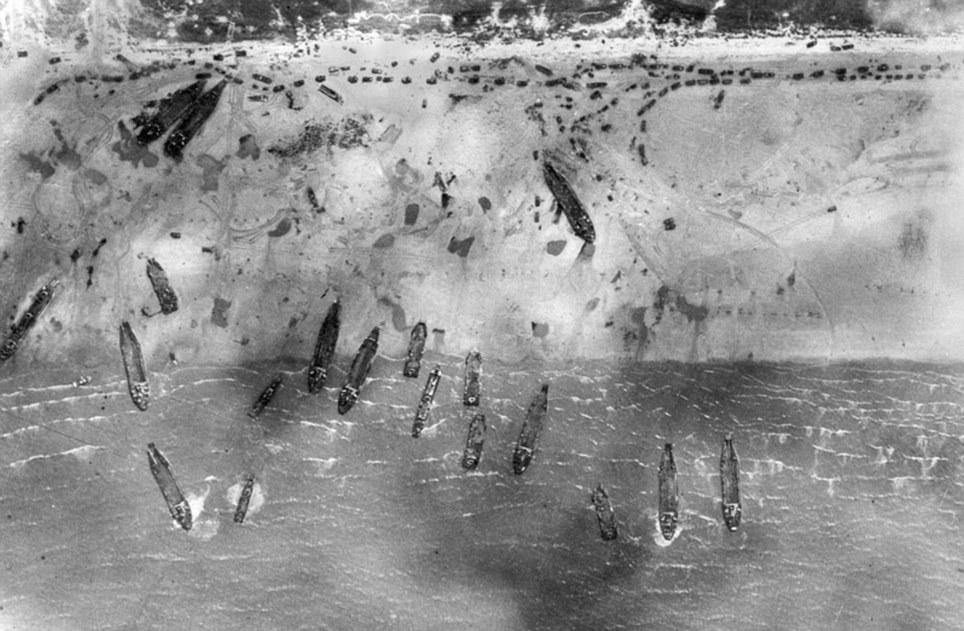
SWORD beach – 6 Jun 1944. This image is taken from a Royal Air Force Mustang aircraft of II (Army Cooperation) Squadron. The Mustang aircraft were made in America and supplied to the British. You can see the chaos unfolding on the beach, as high tide carried some troop boats all the way up to the top of the beach, and subsequent fire support and re-supply boats were stranded way below.
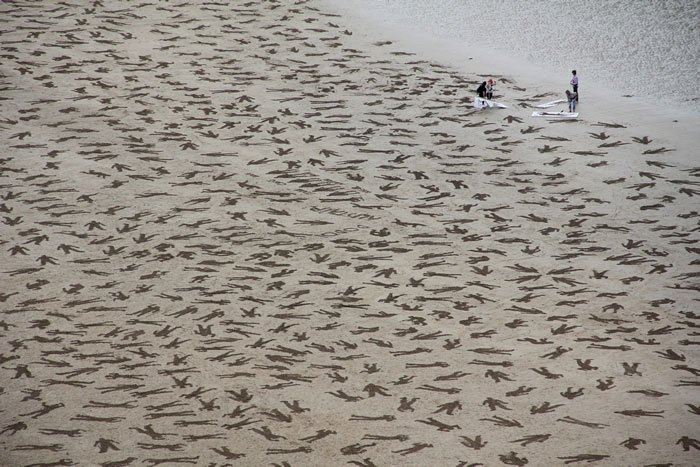
9,000 bodies were etched into the sand at Normandy Beach several years ago, by volunteers who wanted to visually depict the high cost of the opening effort to stop totalitarianism.
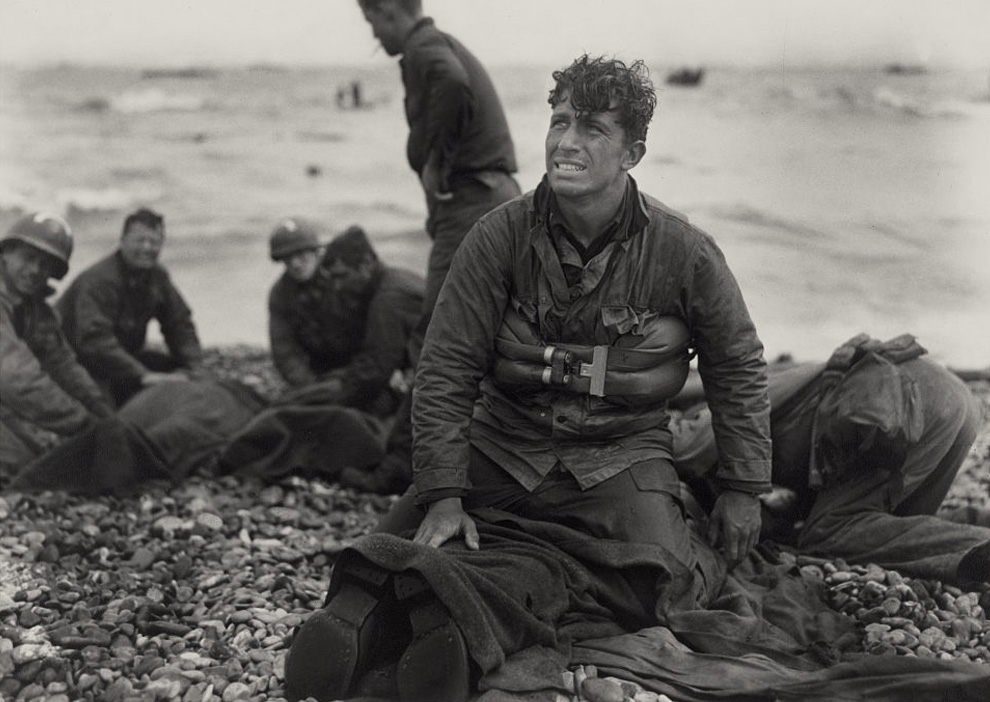
An American serviceman helping cover the bodies of the dead. He was raised in a culture of self sacrifice and risk-taking. Do America and Britain still have the same culture that produced these awesome men on D-Day?
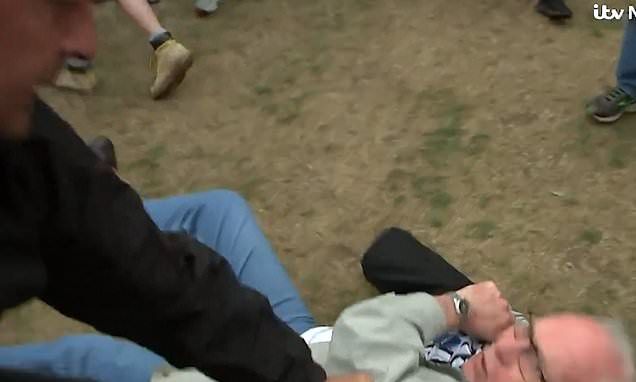
London mayor Sadiq Khan’s anti-freedom supporters beat an old guy because he does not agree with their totalitarian views. Democracy is about disagreeing without violence and resolving differences at the voting booth. Sadiq Khan encourages this violence and is therefore against democracy
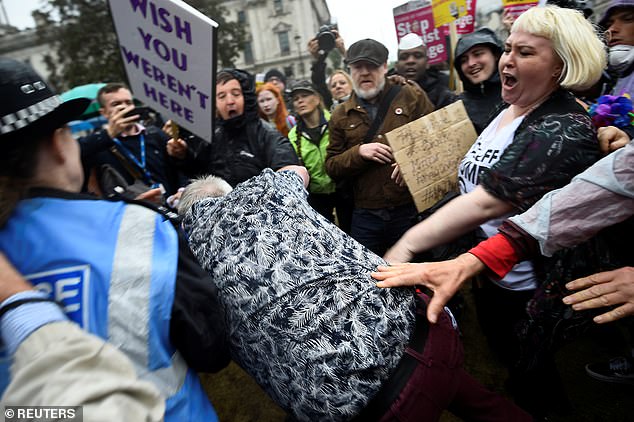
Another British grandpa is beaten by a mob of London mayor Sadiq Khan supporters. Siobhan Prigent is the blonde

Siobhan Prigent accuses British grandpa of being a “fucking Nazi” because he disagreed with her Nazi-like beliefs and behavior. Look carefully at her hateful face, her evil eyes. This is the face of what D-Day soldiers faced on the shores of Normandy

British grandpa has had enough abuse for simply disagreeing with Siobhan Prigent. A second later he was hit in the face with a mystery liquid and Siobhan and her violent pals kicked him to the ground.
Book Review: The Uneven Road, by Lord Belhaven
The Uneven Road (1955), by Lord Belhaven
I read this fascinating book twice, and I recommend you read it at least once. Heck, just the old black and white photos of mysterious holy cities, like al Q’ara, (taken with early hand-held cameras from a bi-plane in the 1920s and 1930s) and traditional Arab tribesmen, both even today far out of reach of Westerners, are worth the five or ten bucks it’ll cost you to buy it on eBay or Amazon. For just five bucks you can get one of these fascinating and educational books, and have a most enjoyable weekend reading, and learning. Find me another great, safe, healthy mind trip for five bucks, please.
Why review a book published in 1955, about the now dead Brutish Empire? What made the British Empire so grand, so great? Setting aside the natural feelings of those locals who were subject to British rule, for better and for worse, one cannot help but marvel at the remarkable discipline, planning, administrative organization the British brought to their empire. Any nation today would be well served to get one tenth that level of service from its own government.
And why would a book published in 1955 be interesting today? For one thing, history has a tendency to repeat itself, or to repeat versions of itself — things that happened in the past seem to happen all over again. If we who are living now can harness the lessons of the past, then we can avoid the mistakes of the past, too; or at least so goes the best thinking. Certainly one must know history in order to know what happened, and how to identify when the same forces are at work once again.
In order to understand where we are today, we must look at what decisions and resulting actions got us here, and why those choices were made (come to think of it, I recently read another similarly aged but highly useful book titled Why England Slept, written in the 1940s and 1950s, then authored and published in 1962 by some then-nobody named John F. Kennedy). The Uneven Road does an excellent job of explaining much of the Middle East and East Africa through one man’s colorful and risky exploits from a military and diplomatic hot seat along the Indian Ocean and the Red Sea, and then into the Italian Alps. Judging by current events, little has changed in the former.
As the title implies, the author took an uneven road in his long life, following completely neither his traditional Scottish upbringing nor his adopted British devotion to Empire. As he says in so many ways throughout the book, Lord Belhaven is a lot like his forebears, individualistic, strong, self-driven men who admired authority and convention as much as they bucked them and tried to fit into them on their own terms. Or one might say, Lord Belhaven and his ancestors tried to make convention in their own image. As an American, to me this independence streak is a highly laudable trait, even if it did damage to the already impressive careers of Belhaven and his father and grandfather.
The author is both very open-minded for his time, gleefully throwing off class and religious barriers that today seem so unbelievably feudal, especially to Americans (and familiar to those Americans who enjoyed the Downton Abbey series) with our hodge-podge zero-caste-system, but which were quite dominant in his early years. He is also representative of some persistent silly views that are also peculiar to certain groups of people where he is from, even today. To me, an American, whether I agree or not, this is all part of being a natural, well-rounded human being, and a sign of being interesting. Everyone has prejudices and sharp-edged opinions, and everyone is entitled to them. No one is perfect, our author does not claim to be perfect, nor does he engage in the vacuous virtue signaling which so sharply defines today’s Western civilization. More to the point, neither you nor I are anywhere near perfect or nearly as exciting as Lord Belhaven, and only very few people you or I have met or ever will meet are going to be nearly as interesting as Lord Belhaven.
Writing as a soldier, administrator, diplomat, lonely husband and then divorcee, and amateur historian/ethnologist/archaeologist, Belhaven is a gentleman, and also a manly man. He is the old archetypical British\Scottish aristocrat patriot, both swashbuckling and under steely self control, a thing of the past which, my gosh, we now could use much more of in our own time. He is clearly a warrior, and an effective one at that, and yet much of his book is stories about how he was not such a great warrior, or how he was charged with establishing peace in lawless places through diplomacy, and yet relied upon deadly warfare.
As he reminds us, especially with the burning of the village of Jol Madram, diplomacy without the real threat and the occasional implementation of brutal violence is simply indecisive inaction, a weakness that inevitably invites more lawlessness or aggression. For Belhaven, there is no foolish, circular “conflict resolution” without resolving the conflict to concrete terms he likes and which work for the most people. Instead of getting “triggered” and fainting into a safe space when confronted with adversity, Belhaven the man of action responds by putting his finger on the trigger of his revolver and explaining just how things are going to get back to full function, or else. In a Western world today of namby pamby political correctness and feminized men, reading this book I could not help but think How refreshing! And also, Where the hell did our masculinity go?
The author’s voice is forthright, unafraid, honest, and though a few times I may disagree with his views, I keep thinking as the pages are turned, “Now here is a man I could respect and like!” Would that Western Civilization today had many more men like Alex Hamilton, aka Lord Belhaven.
Spanning the 1920s through World War II, and published toward the end of the British Empire, The Uneven Road is one more fascinating on-the-ground report in a line of the “Hell, I was there” genre of personal adventure histories written by British military and political officers across the British Empire, upon which the sun did not truly set until the 1960s. The Uneven Road is one of the last from the frontier, and in my experience it is one of the better written and certainly the most personally reflective. In some ways it is a companion piece (maybe even a necessity) to books written by or about others who traveled, explored, dug archaeological treasures, politicked, and fought in and around the Arab Peninsula, such as Lawrence, Philby, Ingrams, Jacobs, and others.
There are many, many examples of these personal field reports and histories from the 1790s through the 1960s. Some are famous, most are obscure, some are kind of boring, and many carry an overt agenda, and yet almost all are illuminating about life among the British Empire’s boots-on-the-ground administrators and soldiers, as well as the occasionally momentous political events of the day. The fact that these personal histories exist at all, and that they are often well written, says a lot about the high caliber of the British and Scots of that time, both the writers abroad and the readership waiting back home. The Uneven Road meets or exceeds all these standards.
While other major cultural “encounters” and confrontations have been largely or absolutely settled in the same time period, in key ways that are of great interest to the modern reader, this book is about East-meets-West, a contest that has only grown sharper and more defined a full hundred-plus years after it fully got under way, as described in these pages.
Britain: A Culture of Selfless Patriotic Duty
One need not read a book to hear or know about England’s long established culture of patriotic duty and self sacrifice for king and country, but reading this book will help the interested reader gain real appreciation for both the depth of feeling most Britons had then, and for the real personal cost it then meant later on in their lives. The unbelievable battlefield losses in World War One and WW II greatly changed England’s culture, resulting in a legacy of pacifism, fear of inevitable conflict, and self-defeat we see officially operating today.
Throughout the first half of his fine book, Belhaven off and on artfully weaves an analysis full of personal anecdotes of British military culture, including how wealthy aristocracy would often take a vow of poverty (as opposed to running a family business or a valuable property) to serve in the military, for the simple satisfaction of providing patriotic service to the nation. The following quote only touches on this, but it covers enough other turf to qualify for mention here:
“One Saturday, towards the end of our last term at Sandhurst, Tony Keogh and I were both excused [from] work because of minor injuries. Tony Keogh was a dour Wellingtonian, whose ambition was to give a lifetime’s service to Waziristan on the northwest frontier of India, a country which his father had been the first to survey.” (page 40)
Waziristan of the 1920s is today several different ‘stans, including parts of Pakistan and Afghanistan. It included then as it does now all of the intolerant, violent religious fanatics who still make it such a special place. From the 1880s through the 1940s, British troop losses there were big. Can you imagine being the first person to scientifically survey a significant portion of the planet, this very rugged, remote place specifically, surrounded by such danger? And then bear a son who simply wants to pick right up where you left off? Such was the tough, brave stuff the British were made of, once.
<sigh>
And it was that same patriotic fervor and absolute selfless commitment that made such brave soldiers for World War I and then World War II, and then resulted in the pacifism of modern Britain, when few men returned home:
“Toll for the brave!” that most perfect of slow marches – how often had we marched to its slow, sharp rhythm. When I hear the tune now I can see, as I saw then, the high, shining fence of bayonets, the straight, erect lines moving forward with irresistible menace and force, the very symbol and image of war. And all with its glint of youth unafraid, unconquerable. Toll for the brave indeed; few who marched that day have pottered on as I have done for fifty years.” (Page 40)
<sigh>
His description of his surprise at winning the Sword of Honour at Sandhurst is both funny, and then sad, as his stiff-upper-lip military father refuses to acknowledge it until two years afterward, and only then sarcastically. That sword becomes a snapshot of his challenged relationship with his father and also a symbol of British culture.
Report from the Frontier: “It was impossible to be bored in Aden”
If India and Africa provided the greatest quantity of opportunity and adventure (the British defeat of France’s fleet at the Nile, the ‘Mountains of the Moon’ search by naturalist-explorers Burton and Speke for the source of the Nile, the Mahdi, the Zulu Wars, Islandlwana, Rorke’s Drift, the Boer Wars, and so on) for these far-flung representatives of Her Majesty’s Service, it was the Near East and Middle East that created the most vivid and gripping images consumed widely by the public, even today.
Think of “Lawrence of Arabia” and all the thrilling weight that phrase still carries a hundred years later. And so just a decade-plus after a charismatic young Brit, T.E. Lawrence, led the Arab revolt against Ottoman Turk rule throughout the Near and Middle East, it is primarily on and around the Arabian Peninsula that Lord Belhaven’s book takes us. It is an often militarized and occasionally one-man-army journey by foot, camel, horse, donkey, bi-plane, and boats of various type and size, including some pleasure craft of his own construction.
Based in Aden and sallying forth through abandoned ruins from hidden, unknown, lost civilizations to high mountain forts inhabited by fierce tribes, Belhaven fearlessly and luckily does his best to bring order to the fractured tribal chaos of the southern tip of the Arabian Peninsula, what today is known as Yemen and known then as the British Protectorate of Aden. Like most Brits of his time, Belhaven was an Arabist, an Arabophile who simply looked past the stark differences of Mohammedanism compared to his own culture of gentle mercy and forgiveness, stricken as he so clearly was by exotic Arab ways. His gunfights, in which he was sometimes greatly outnumbered, the aerial bombings, and his knife-edge nose-to-nose confrontations with cutthroat highway gangs and treacherous tribes are the stuff of legend; his fishing and hunting trips during working hours are not, though he does describe them in obvious joy and often at his own expense.
Though in a serious tone Belhaven opens up about his family life in the first third of the book, in the rest he makes it clear that he knew how to have fun and push British foreign office sensibilities beyond their traditional staid demeanor.
Belhaven gets extra credit for a dry wit and self-deprecating humor applied from several miles up. He does not take himself too seriously, or even seriously at all, at times, even as the bullets are flying and his life hangs by a thread. This bon vivant tone heartily leavens the serious life-and-death situations he describes, including shooting himself in the foot in the heat of battle, and nearly shooting his Somali hunting guide who chases a large leopard out of a cave and into Belhaven’s face, not to mention his rear line and front line experiences in World War Two.
One of the artifacts of time and place is the author’s fascination with genetics, a hot (and also destructive) topic of that era. Repeatedly marveling at the “pure” inbreeding of certain tribes along the southern Arabian Peninsula, the author relied upon simplistic, romantic, and plainly incorrect notions of genetics. But this is to be chalked up to the general and long lasting British awe and love for the colorfully fierce Arab nomads of that region. Whatever they did, no matter how backwards or weird, was very cool. Who can blame him for thinking thus? Were you or I to live out there today, we would find it just as alien and compelling as he did, and it would all be just as cool now as then.
Insights into his own family struggles with intimacy and finances, and the perhaps unrealistic lifestyle expectations accompanying title, are illuminating for those wondering how the famous British aristocracy slowly crumbled from the inside and out.
When it comes to archaeology, what is not mentioned is louder than what he might have written. Lord Belhaven apparently had an eye for long lost antiquities easily unearthed with the toe of a boot in the loose sand of some long lost civilization in the middle of the blistering desert. In a tempestuous sea of worldwide archaeological looting by British nobles, scientists and adventurers, Belhaven’s personal interest in a few old broken, abandoned things lying in the dirt was strangely singled out for criticism by a couple of bespectacled Peabody types in imperial administration back home. Belhaven makes no mention of any of this in his book, and maintains his focus on big picture civilizational development. As he should, in the tradition of the fighting naturalist-archaeologist hero; a kind of Indiana Jones.
Detailed references to carved alabaster amid the sands, and marble ruins, lost cities, dams, water works also occasionally appearing and then disappearing amidst the shifting sand dunes add an element of authentic mystery that is harnessed in the Indiana Jones and The Mummy movies. Except that Belhaven was actually there, and saw and explored those ancient mysteries with his own eyes.
Will a couple of “Aw, shucks” ruin all the “Atta Boys” in this book?
Though he does not explicitly set out to do so, the author’s plainly spoken recollections invite the reader to share the author’s unspoken pangs of loss over decreasing British influence and culture.
In 1955 the author was in good company, with his views on race (a word he uses many times with several different meanings), skin color, religion, and social class, even as he was clearly departing from those long-held views. Bigotry and class snobbery were then becoming a thing of the distant past, a change which Belhaven mostly embraces and in many ways led in his own “black sheep” personal way. Those anachronisms particular to that time period he retains were either common figures of speech, cultural crutches, or concrete functions of Caucasian minority survival in otherwise hostile foreign places.
We today may not agree with him or his use of some words, but he usually explains himself well, and so we can often understand his thinking. Understand is the key word here, and it does not mean or infer acceptance or approval. And if the reader wonders why I, myself, am insufficient in my condemnations of the author’s few lapses, may I suggest one consider the word “tolerance,” or the phrase “open minded,” or that almost extinct word “understand.” In other words, that was then, this is now, these are different times than then, and once again, everyone has opinions and views that others find “offensive” or uncomfortable. Get over it, get over yourself, learn to tolerate differences in opinion, and move on. I did, and you can, too.
In an educated and open society such as ours, everyone is entitled to an opinion, even a wrong opinion, and even a bad one. God knows, today’s self-righteous book-burning censors falsely accusing everyone else of political heresy and racism have plenty of bad and wrong opinions themselves. In the past, people have been and should continue to be able to disagree with one another without taking silly offense at the simplest of differences, and then retreating to corners and brandishing the war colors. Goodness gracious, people, put away the guillotines! Give people some space to be wrong, or to explain why they thought they were right. And that maturity is what a reader must bring with them to get the most on this trip through time.
For example, in a book full of many humorous and comical stories, anecdotes and quick turns of phrases, there are a couple references to race and genetics, captured so perfectly in The Uneven Road, that really shine a light onto the important evolutionary changes of thinking and attitude about race and skin color happening in the pivotal 1950s. Recall that Belhaven is a born aristocrat:
“I found the whole subject of breeding, as it was accounted in our curious society, absurd; if a man married the crossing-sweeper’s daughter, no one bothered to find out about her breeding; her father’s trade was enough to condemn the match. When it was discovered that he was a rich Jew, who swept crossings through eccentricity, opposition could be relaxed, particularly if he kept race-horses and was a member of the Carlton.” (P. 29)
One page later Belhaven hilariously describes how his Eton school class failed a basic introductory genetics course on mice, with the best and wildly cheered answer to the teacher’s question being a boy’s half-assertion-half-question that inbreeding causes parents to eat their young.
Fast forward sixteen years and Belhaven, now working as a British Political Agent in the Arabian Peninsula, writes: “I have sat in their gathering of Princes, in their Chief’s lamp-lit reception-room and watched them, their skins shining like polished gun metal in war-paint of oil and indigo, a dull sheen of gold and silver in their great daggers, curved with the curve of the moon; the remnant of a great nation indeed, virile, unconquered by arms or by time, handsome and courageous. And marvelling, I have remembered that these men among whom I sat married always, by long custom amounting almost to law, among their own family; so through the millennia they have achieved an extraordinary purity of breeding…for a period of five thousand years…” (P. 86, emphasis added)
And so, as much as Belhaven mocked his fellow students on their failure to grasp the essentials of healthy, necessary genetic diversity among mice and humans, he then later includes himself in their unfortunate company by endorsing the worst sort of human inbreeding, still going on even today in the Arabian Peninsula. This is the intellectual price one might pay for getting emotionally involved with something, as did Belhaven and all of his fellow Arabists. However, it remains fact that none in that time could have remotely foreseen that a surprisingly large number of parents across the Middle East would today encourage their own children to engage in suicide bombings and attacks. Talk about parents eating their young…
Just coming out of the real, actual Lawrence of Arabia time, an amazing time of high military and political adventure, and his living and working in that exact location with many of the same people, Belhaven’s near infatuation with all things Arab and Islam were then and are now understandable. His views on the Middle East were widely shared among his fellow Brits and Scots at that time. Even today many British still cling to detached, romantic notions of Arabia and Sharia-compliant beheadings and stonings, though having now painfully absorbed nearly half of the Arab world into London and having watched the other half wage sadistic war amongst themselves at home, and against Western Civilization abroad, has been shifting those old romantic notions into some other cold, hard, realizations.
Similarly, his views on Jews and Judaism range from the ground-breaking class acceptance (done with excellent humor at the expense of his fellow Brits; see above) to the old traditional British snobby disdain. He was only a little less tough on the Church of England. One must wonder what Belhaven would have written had he lived to see most American Jews and the Church of England and the current Pope all almost wholeheartedly embrace Marxism and anti-Western anarchy. If there is a resurrection of the dead, I want to be right beside Belhaven, so I can be the first to hear his colorful, insightful reaction to these unfortunate, really unbelievable facts.
One thing Belhaven did not live to see was the now-modern state of Israel, the then-nascent version of which he refuses to name in his book, but which he negatively alludes to several times. This is the old fashioned British Arabist coming through. Of the Jews of Yemen he has a brief but historically important and also humorous first hand encounter and report; but he then fails to mention their subsequent unjust inclusion among the nearly one million innocent Jewish refugees ethnically cleansed by his cool Arab friends from their ancient, very pre-Islamic communities across North Africa, the Near East, and the Middle East.
“So we came near to the end of our stay in Sa’na. Champion [Sir Reginald Champion, then Civil Secretary to Aden and later its Governor] and I called on the head of the large Jewish community in the city. Although considered by the Arabs to be an inferior race, the Jews of the Yemen were well treated by the Imam [Imam Yehia, a Shia leader who later lost the Arabian Peninsula to the Wahhabi al-Saud family, and whose spiritual descendants today are the once-again rebellious Hauthis]…Now there are no Jews left, they have all gone to Palestine, a Promised Land without either the milk of human kindness or the honey of their expectations…” (P. 104)
Hello, Lord Belhaven, reality is calling now, just as it did in 1955. The Yemenite Jews did not just casually get up and leave their homes in Yemen of 2,000 years for Israel out of a desire for better falafel or flush toilets; they were universally axe murdered and driven out of their homes by the same Muslims you so admire, the lucky survivors arriving in Israel with the shirts on their backs, their family homes and businesses stolen and occupied, their bank accounts looted, their personal property removed by force, like all the other Jews from every other Arab country at the same time. So why Belhaven ignores these facts to get in some shots on Israel is, again, likely a question of the impact of that romantic infatuation with remote alien cultures. Were he alive today, he would probably be a Christian Zionist like another famous and contemporaneous British Arabist, Col. Meinertzhagen (who when introduced in private to Adolf Hitler responded to the perfunctory ‘Heil Hitler‘ with his own ‘Heil Meinertzhagen‘).
Did Belhaven write some occasionally harsh stuff? Maybe so, certainly by today’s standards. But so what. Get over it. On balance, this book is 99.999% fascinating, illuminating, educational, and important history. Why judge and then dismiss the entire work based on a couple anachronisms from his own day?
As briefly mentioned above, one of the big challenges our younger generations are failing at is their tendency to immediately be offended by, and then harshly judge and dismiss, older generations by applying current standards. Instead of trying to understand how the previous generations thought, and why they fought way back when. Surely there must have been compelling reasons for the many momentous decisions that were made and then chiseled into stone or cast in bronze. Not everything back then is “racist,” which has become as hollow a crutch word as can be found. As old statues, symbols from important self-inflicted internal wars across America, are pulled down by screaming, infantile, anti-history mobs, one cannot help but wonder if the screamers will ever be interested in why the statue was erected in the first place. Or do they aim to simply re-write history (irrespective of the actual facts, causes and effects) to suit whatever political purpose suits them at some future time? I would rather have Belhaven’s honest accounting than a dishonest re-writing of who we are and how we got here.
In sum, whatever “Aw, shucks” Belhaven may have earned in a few spots here or there, they are far outweighed by the many “Atta Boys” he racks up over and over throughout this excellent book. For those younger folks who are actually and truly interested in understanding history, and how people’s views on race, religion, and income\ social standing changed over time in Britain and America, and how the Arabian Peninsula yet remains completely unchanged, The Uneven Road is a refreshingly honest and educational Exhibit A at the crucial time of the post-war 1950s.
Obscurity often means fascinating
Many years ago, in the late 1980s and early 1990s, when it was an actual newspaper that reported much actual news, instead of having the entire paper be one editorial after another masquerading as news, which it does today, the New York Times published a series of articles based on the simple methodology of having a news reporter (another extinct species the younger generations have never seen) open the New York City phone book (‘And what, too, is that?’ the younger generations ask) and randomly place his or her finger on the page. This was done ten times over the course of a bit over a year, as I recall. Whoever’s name was there over the finger nail got a call from the finger’s news reporter, who then did a detailed report on that person’s life. As the subsequent reports showed, despite living almost entirely quietly and privately in the big anonymous city, each and every one of those randomly selected people had nonetheless led a fascinating and often deeply compelling life.
And so, here now we have similarly plucked out of historical obscurity a book long out of print and probably originally of interest to few beyond aging British soldiers and Foreign Service dignitaries. Yes, here in Lord Belhaven we have a man whom very few have heard of, and as he is an aristocrat he is presently out of favor for having violated some social construct or…thing, even though he was a reflective, self-deprecating, risk taking and self-sacrificing humble public servant who enjoyed breaking with his own social norms and elevating many downtrodden. His life was more than fascinating, it was bigger than life, as we say. It was certainly bigger than my life or anyone else’s life I know of, and I know some pretty adventurous people in military and law enforcement, as well as international hunters. And today outside of Britain and America’s special forces operating abroad, very few public officials do anything close to what Belhaven did. And given the opportunity, few today would take it. Pity.
It was people like Lord Belhaven who put the “great” in Great Britain. Given how far and wide Hollywood looks for true-to-life stories, why no one has done a movie based on this book or on Belhaven’s life is one of those mysteries that highlights how shallow Hollywood is. Because it is true that Indiana Jones was mere Hollywood fiction, whereas Lord Belhaven was for real.
Fairy Forts: Being Truly Green, and Emerald
On a really neat hike around Howth, Ireland, guided by a really neat guy named Mark, I was introduced to the weird world of Irish politics two weeks ago.
Just two weeks before I had an even stranger introduction to Irish politics, when at the Yuengling beer plant tour in Pottsville, PA, a little Irishman with a big Brogue said to me “Yer nawt Oirish, becauz yew doon’t leev ‘n Ireland, and I’m nawt Oirish becauz ah leev ‘n Northr’n Ireland.”
The little master was quite assertive in his girly long shorts (thankfully these have not yet arrived in America) and me, for the first time in my life not knowing what to say and how to not say it, I simply said “Brother, you need another beer.”
And yes, he did drink another beer. Guess that meant he’s not really Irish…
So two weeks later on Howth, I described this encounter to our guide Mark, himself of Belfast like the non-Irish Irishman in the girly pants, but Catholic, and he responded like a PhD historian.
To wit: After 750 years of English occupation, colonization, violence, repression, uprisings, death, mayhem, chaos, cultural suppression, etc., the Irish are still sorting a few things out now that the English are mostly out.
The idea that an Irishman from Belfast is not really an Irishman is to me, like, I don’t know, let me think of something incongruous, well, it is like finding out something so incredibly outlandish that your whole world view goes topsy turvy for a week. That was the effect.
But Mark said matter of factly “Oh yeah, that is the mentality and attitude up there [Belfast], and that is why I left to come down here [Dublin].”
You would probably have to live there over a few lifetimes to figure it all out, because just as I was starting to comprehend the political and cultural dynamic of Northern Ireland, Mark then went on to describe Irish MP Danny Healy-Rae in the way someone from some deep urban ghetto cloister in New York City or Los Angeles would describe a rural NRA member farmer in flyover country.
It was not pretty, but hey, who am I to judge, and I just sat and nodded along. Mark was an excellent guide and passionate about his homeland and his happy life there. I can relate, and so like I said, I just nodded along.
Danny Healy-Rae is probably all alone in his singular rural style of political representation the world-over. Despite having a lot of rural areas and a lot of fired-up rural people, I do not think America has anyone like him in politics. Danny Healy-Rae is both principled and colorful, with a straight face.
The incredible irony of Danny Boy’s place on the political spectrum was totally lost on Mark, who only moments before was explaining Irish politics very cogently, and advocating for new roads in the deepest rural areas as “progress.”
See, Danny Boy objects to new roads being built through really rural areas, especially those places that have “fairy forts.”
Yes, fairy forts. Wonder if you will, laugh if you must, but the man is indeed worried about how new roads will destroy or impact ancient fairy forts. Setting aside the rural traditions and folklore about fairies and fairy forts (and I do tend to side with both Native American Indians and Native Irish on their spiritual sensitivities to real things in the natural world that city folk aka Town Mice completely miss), fairy forts are real.
A week after Mark had explained Irish politics so clearly to me, we visited Stonehenge.
Have you gone there? Stonehenge is literally surrounded by fairy forts. Lots of hill forts and burial mounds and mystery places clearly built by the ancients for mysterious purposes that were really important to them and unattainable to us desensitized moderns. I was not expecting this side of Stonehenge, and it turns out it’s the presence of all those hill forts and mounds that make the big Stonehenge rocks so important.
After seeing this unexpected oddity in person, I looked up “fairy forts” and read most carefully this one (of several) reference. Naturally the Irish ones came to mind first, because of the footage of Danny Boy talking about Fairy Forts in Ireland’s parliament.
Archaeologically a “fairy fort” is a fascinating historic remain, and it’s evident why the ‘hick’ locals in all these places both revere and fear them. The English seemed to have plowed theirs extensively, which is very bad from the view of the historian, archaeologist, or Druid.
Turns out that Danny Boy is not only concerned about new roads destroying Fairy Forts, but he is also publicly concerned about the explosion of rhododendron in rural Ireland.
Now as much as Mark mocked Danny Boy’s unpersuaded opinions about man-made “climate change” (like Danny Boy, I too am unpersuaded by the heavily politicized, faked data behind the mere statistical models purported to be and shouted to be irrefutable “science”), Mark admitted he did not know the flora and fauna subjects along our beautiful walk on Howth. Nonetheless, he mocked Danny Boy over the rhododendron thing, too.
That flora issue includes the tidal wave of invasive plants moving in on the beautiful Irish countryside. That would also include rhododendron, and you will not find a bigger faunal representation of imperial Victorian England (something Mark is very much opposed to) than the various copses of rhododendron planted and quickly spreading from one end of the Empire to the other.
In other words, Danny Boy is objecting to invasive rhododendron for environmental and cultural reasons, things that his detractors say they care about, and his supposedly proud Irish compatriots are mocking him about it. They mock him simply because he comes across as a hick, not because they actually know better than he or care more for the environment than he.
I think this hillbilly Irishman MP, Danny Healy-Rae, should get a lot more credit from his fellow countrymen than he has thus far received. At first I thought he was just an aggressive environmentalist trying to keep roads and invasive plants out of undeveloped Paradise. Now I think he’s also a keen historian!
We will return to Ireland. Several other friends and friendly couple friends of ours were simultaneously touring Ireland when we were there, and between us all we all pretty much covered the whole country by car, bike, kayak, and foot. The collective photos we all took showed Ireland in all its splendor. What a beautiful, unspoiled, undeveloped, magical place is Ireland.
Turns out that Ireland, the whole entire place, is one big beautiful, magical fairy fort!
We are coming back, and we hope that Danny Boy has succeeded in diverting the roads, protecting the fairy forts, and uprooting the rhododendron. Mark, you will have to come with us, because I think you should see Ireland through our eyes. It might help you better appreciate the incredible natural beauty you have.
And this next trip might help us all better figure out Irish politics, because as we can see with Danny Boy vs. the liberal Irish, Irish politics are a complete mess where up is down and left is right. When you have liberals advocating for environmental destruction and keeping the symbols of imperial England, and the conservatives opposing them are the greens, things are just not yet sorted out.
That’s the best way to put Ireland. It just isn’t yet sorted out. But it is beautiful, thanks to the fairy forts.
Howth and the “Eye of Ireland”:
Britannia, Rule Britannia
Any institution that disregards a substantial native resource that is accessible and usable is shooting itself in the foot. Plenty of companies and governments make the mistake of missing out on key resources – human, material, or other – and are the poorer for it. They also know they must constantly be on the watch for it, and correct it.
When it happens to a private company, the company is less competitive than it could be, less profitable than it should be. The profit motive keeps companies sharp and on the lookout.
When this disregard occurs happens to a nation with its leadership, it is criminal, and unfortunately, there is no built-in measure or quantifiable yard stick. While many people will keep going and going as a nation ails until they and it go over a cliff, there are others who have long, old, and wise vision, and who would sail the ship of state into calmer, better waters. To ignore their leadership qualities is to waste the best resource a nation has. Democracy is the constant battle between these forces of cold comfort and patriotic ambition.
Take England as a bright and shining example of a great nation that is self-destructing by deliberately excluding its best leadership.
By any measure, material or intellectual, England is one of the world’s greatest civilizations ever achieved.
Begun and long run as a monarchy (like every other part of the world), a might-makes-right social structure with barons, dukes, counts, and attendant aristocrats to whom power and wealth naturally flowed (like every other part of the world), and a large underclass of poorly educated laborers barely able to survive (like every other part of the world), England today is in some ways a good example of meritocracy. More opportunity exists for more people. Democracy has largely worked.
The monarchy’s political wings have been clipped, the aristocracy was purposefully driven from the public square, and the most Marxist punitive measures possible were instituted to steal generational wealth so that any semblance of monarchical or aristocratic England would be eliminated.
As a result of these artificial policies, the National Trust now owns more castles and great halls than do private families, and some of England’s best natural landscapes (the natural environment) have been permanently damaged. Talk about shooting yourself in the foot!
One can argue that England is more of a meritocracy now than it was, but that is really difficult to prove, because the government is the new monarch. Isn’t it?
England’s bureaucracy is nothing short of an unassailable, unaccountable, unchangeable, singular power.
Few entrepreneurs really get ahead in England, because the regulations and taxes are so damning; holding on to generational wealth is nigh impossible, due to the death taxes designed to strip successful people of their rewards. A universally low-income population is the new goal of the English bureaucracy.
Even worse, some of England’s greatest personalities, strongest patriots, most well educated and biggest thinkers have been purposefully marginalized. These people are the residual aristocrats, the heirs to the dregs of the monarchical system that actually produced England’s greatest generations in WWI and WWII.
Can anyone imagine an Admiral Jacky Fisher or Admiral Roger Keyes rising to lead England, today?
My grandmother is rolling over in her grave as I write this, but MomMom, times change. Nations change. Needs change. My grandmother (MomMom) Jane was a true-blue Daughter of the American Revolution, a fierce advocate for meritocracy and a fierce opponent of monarchy or aristocracy. She raised us all on stories of the American revolution, its just response to the unfairness of aristocratic England, and the cruelty of King George.
But today, things have really changed. Those old symmetries and forces no longer exist, and in their place have arisen other forms of monarchy and repression. England today is wracked by a lack of social structure or universal national standards, by anarchy masquerading as government. A huge vacuum space has opened up, and the entire nation could implode.
Today in the place of King George is a cruel and tyrannical English bureaucracy and judiciary, that rules the English citizens as though they were serfs. Very little due process, no free speech, and ambiguous political correctness as the new unattainable measure. Say the wrong the thing, write the wrong thing online? Off with your head!
It is time for England to return to its greatness. To do so, she must draw upon one of her greatest and most ignored human resources, to resurrect many of her finest patriots, her most committed citizens, and employ them in leading the nation away from the brink on which it stands, and back to greatness. This would involve tapping into the aging aristocrats who remember a truly Great Britain, and who would Make Britain Great Again.
We have all learned over the past 250 years that monarchy is not such a good thing, and we have also learned that politically correct Marxism is just as arbitrary and anti-freedom as any monarch. The solution to what ails England today lies in the collective wisdom and patriotism of England’s best elders, the last connection to a truly Great Britain (not necessarily a Greater Britain); its aristocrats who care the most about the most English.
It is time Britannia, it is time for Britannia to rule Britannia once again.
 Or put it this way.
Or put it this way.
Castle Dundas…a Must-See
Nothing competes with an experience so new and profound that it changes your views on a host of subjects. Thus was my recent introduction to Dundas Castle in Edinburgh, Scotland.
On the outskirts of historic Edinburgh (today pronounced “Edinboro,” as if the Vikings and Saxons had not come through previously. Think of pronouncing Pittsburgh as ‘Pittsboro’…), and just barely within view of the mighty Edinburgh Castle, is Castle Dundas, complete with spectacular grounds, English (Scottish) gardens, new and old sculptures (including an old one of Oliver Cromwell) and stone fountains, and a 1400s stone keep designed to withstand the best of catapults in its day.
Parapets ringing the high walls of Dundas date from the 1800s, 1700s, and 1600s, and the keep is centered inside it all.
Were I to be married again, to the same wonderful woman (Vivian), of course, I would do it at Dundas.
The laird there, Sir Jack, has made Dundas an unusual and meaningful destination for couples seeking to be wed, as well as a place for shooting parties, indoor and outdoor family and corporate events, and golfing.
There is a generous helping of tartan drapes hanging from twelve-foot ceilings; but unlike most places, it fits because it belongs there.
It’s the inside of that 1400s stone keep that is the main attraction, and a place the likes of which you will never see again in your life, and I don’t care of you are a Duke somewhere with your own castle, because few of these old keeps remain intact.
Yes, it is a bit dungeon-y, and the only entrance is through a massive iron door turning in on four-inch-thick iron spindles. Now THAT is a door.
The interior of the keep is a series of large and small rooms with arched ceilings, all connected by a single corridor and a gently winding staircase. Occasionally a secret staircase drops off and down out of sight, presumably for easier escapes in times of war and invasion. Each room has its own decor, but all have the ancient, sombre stone walls that remind us of old tymes in a way that no theme park, no 1800s Rhode Island copycat stone mansion can ever capture.
For example, in the stone steps somewhere between the second and third floors were drill holes, where someone hundreds of years ago had repeatedly spun a distaff or spindle. Perhaps making yarn from sheep’s wool, or breaking down some foodstuff into constituent parts, or mixing some foodstuff, a person had sat in that one lonely spot in the staircase, contributing their share of labor to the household, and by all appearances others had sat there, too.
If those steps could only whisper, much less talk…. I swear I heard the clank of armor, the rustle of silk, and the faint whispers of palace intrigue echoing.
My favorite room was no, not the armory, though that is a neat room, surely. Rather, deep into the heights of the keep lies a large chapel room where weddings are held. Another smaller, distant room is where the couple signs their wedding contract.
May I suggest, Sir Jack, that you have made a copy of the most Celtic Kilchoan Cross, now found at Inverie, with the hole in the middle, where the new couple can extend their betrothal vows and pass through their wedding contract. That would complete the wedding experience at Dundas, and introduce what should be a common and most beautiful practice.
If you live anywhere in England or Scotland, or America and Canada, for that matter, and you are considering unusual and rare places to get married, may I recommend Castle Dundas.
Wow.
Obama & Bill Clinton officially embrace imperialism, then poormouth liberty, independence, and freedom
As anyone paying any attention to politics already knew, neither Barack Hussein Obama nor Bill Clinton are committed to liberty, freedom, or independence, and like the good power-hungry statists they are, they openly embrace imperialism and military occupation. When it serves their interests.
Today the mainstream media prominently ran two statements, one by each man.
Each statement began with a dissembling lie about how neither Obama nor Clinton really have anything to say about Scotland’s wish for independence from the mis-named “United Kingdom.”
You know, kind of a disarming warmup for the dagger-in-the-chest that is coming right behind it.
You know, they support the “united Kingdom” that was only united through Britain’s imperialism, deceptive diplomacy, military conquests, occupation, land theft, genocide and ethnic cleansing, and religious totalitarianism.
After the blase disclaimer, each man then goes on to say that Scotland should not become independent from its longtime foe, occupier, and vampire-like neighbor, England aka Britain, home of the Britons (not the Scots).
Both Clinton and Obama provide generic and vague sentimentalist goo as their supporting argument. Both rely on some version of “We know you don’t like it, but it really is best for you, the little people.”
See, Scotland owns a lot of oil and gas fields that will instantly give it financial independence from Britain, which in turn may become the weak sister, not the domineering exporter of bad TV and cute Cockney accents it is now.
I vote for freedom for Scotland. I vote for independence from Britain, like we Americans have. I vote for liberty from Britain’s insane laws that have turned justice upside down.
If anyone from Scotland reads this, please know that we Americans love our independence from the damned British, and we hope you do, too.
Some Westerners still adore Imperialism despite their protestations
If there is one hotbed of kooky political extremism in Western Civilization, it’s England.
As it was in the 1920s and 1930s, England is full of self-proclaimed “peace” activists and anti-imperialism yellers and screamers.
Their weak righteousness brought on World War II, and paved the way for massive treasonous infiltration of English government at all levels.
Many Soviet Russian spies were warmly welcomed by these activists to set up shop and undermine the individual rights and liberties that mark the strongest European democracy.
Anti-British sentiment ran and still runs quite deep in Wales, Ireland, Scotland, the Falklands, and many other far-flung places unassociated with England proper.
Yet where were those activists then, when those nations next to England yearned for their own self-determination? Sure, the activists accused everyone else (America, Israel, the actual anchors of Western freedom and tolerance) of vicious imperialism, but they themselves loved the unfair, artificial, imperialistic, forced notion of a UK. Scotland, Ireland, Wales were independent places with unique languages, cultures, and religions. They were hardly “united” with England by choice.
The Falklands? WTH?!
Why now that Scottish citizens are finally waking up to their own freedom are the British trade unions, left wing activists, and self-appointed bosses of equality silent on Scotland’s chance for true opportunity?
I’m not Scottish, Welsh, nor Irish, I am an American, but I do know that my country fought British imperialism many times, and that Americans greatly benefited from their Constitutional republic’s individual liberties.
It is time for Britons to act in a consistent, civilized way, and set aside their imperial self-interests.
As a former Scottish freedom fighter once said on film, FREEDOM!
Why I am against “gun control” in a nutshell
I am against “gun control” because it has no correlation with crime control.
Police are not required to protect individual citizens from harm, but rather to provide for the general peace.
So now we have government officials who want to remove my ability to defend myself. But they will not provide for my defense, nor will they be accountable for either failing to protect me, or for eliminating my ability to protect myself.
This is the definition of failed government. It is all about control, and nothing about serving the citizens that give it legitimacy.
This is the situation in England, where law-abiding citizens are disarmed, and self-defense is punishable and is actually often punished more harshly than the criminal act that initiated the defense.
British activist Piers Morgan pretends to be a journalist, but he is an advocate for policies that clearly violate America’s Constitution, a document created to protect Americans against people like Mr. Morgan.
That’s why I am against “gun control.”
